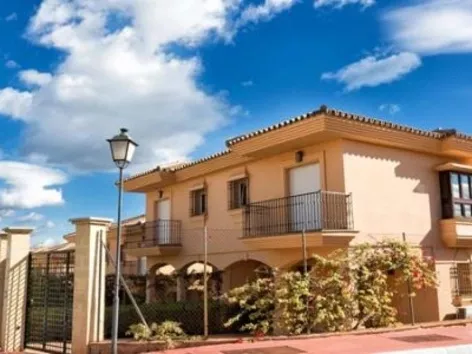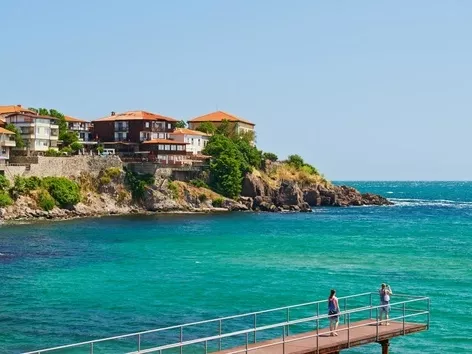How to rent accommodation in Spain: where to look, rental features and useful tips for foreigners

Renting a property in Spain can be an exciting but also a challenging process, so it's important to know how to approach it correctly. Find out where to look for property, what resources to use, how to prepare the necessary documents, what to consider before signing a lease, what legal aspects are important, and what to look for when choosing a property and concluding a contract
Renting a property in Spain is an exciting step, whether you’re moving for work, study or just to experience life in this beautiful country. The process may be a little different to what you’re used to, but with the right preparation, you’ll be able to find your perfect home without any problems. Here’s a complete guide to renting a property in Spain, including where to look for properties, what you need to know and key factors to keep in mind.
Choose a reliable health insurance policy on the Visit World portal to protect yourself from unforeseen expenses during your move. Support from a trusted insurance agent with a guaranteed payout in just a couple of clicks!
Where to look for rental properties in Spain?
Finding the right rental property in Spain can be both exciting and overwhelming, especially in cities where demand is high. Here are some of the best places to start your search:
1. Online platforms
There are a number of online property rental websites in Spain where you can browse listings from the comfort of your own home. These are the most popular and widely used platforms:
- Idealista: One of the largest property websites in Spain, with thousands of rental listings across the country.
- Fotocasa: Another popular platform that offers a wide range of rental properties, from apartments to houses.
- Habitaclia: Mainly focused on properties in Catalonia, but has listings all over Spain.
- Pisos.com: Another comprehensive website that features rental and sales listings.
- Yaencontre: A platform for renting apartments and houses, offering both short-term and long-term options.
2. Real estate agencies
If you prefer a more hands-on approach or need help navigating the Spanish rental market, working with a real estate agency can be helpful. They often have access to properties that may not be listed online and can help you with legalities. Keep in mind that agencies usually charge a commission (usually equivalent to a month’s rent), which you should budget for.
3. Social Media and Communities
There are Facebook groups and expat forums where people post affordable rentals. Some of these listings may be more informal and not hosted on commercial websites. These platforms can sometimes offer more affordable options, but make sure you check the legitimacy of the listings.
Important! When meeting with realtors and landlords, bring as many documents as possible that prove your solvency and reliability. The more you have, the better.
If you are responding through websites, then immediately introduce yourself briefly and again your reliability. It is important to prove that you can pay on time and in full.
What you need to know before renting a property in Spain?
- Overview of the Spanish rental market
1. Big cities vs. small ones: Big cities such as Madrid, Barcelona and Valencia tend to have higher rental prices due to demand, while smaller towns and rural areas may offer more affordable options. Keep in mind that rental prices in tourist areas can also be inflated, especially in popular summer destinations.
2. Property type: In Spain, you will usually find apartments (piso), houses (chalet) or duplexes (dúplex). Make sure you know what you are looking for. If you are looking for a house with a garden, keep in mind that prices may be higher in cities.
3. Furnished vs. unfurnished: Many rentals are unfurnished, but you can still find fully furnished apartments, especially in tourist areas or in large cities. If you are looking for an unfurnished property, make sure you have furniture and any appliances.
4. Long-term vs. short-term rentals: The most common rental contracts in Spain are for one year, although short-term rentals (for a few months or weeks) are also available, especially in cities with high tourist demand. Make sure you are clear about the length of the contract and the renewal terms.
- Legal aspects of renting in Spain
Before signing a rental agreement, it is essential to familiarize yourself with the rights and obligations of a tenant:
1. Tenant protection: Spanish tenants have strong protections. For example, if you have signed a contract for a minimum period (usually one year), your landlord cannot ask you to leave before the end of the contract unless there is a breach of contract.
2. NIE (Número de Identificación de Extranjero): If you are a non-resident or foreigner, you will need a NIE number to sign a rental agreement. This is a tax identification number that is required for all legal and financial transactions in Spain.
3. Rent increases: Rent is usually linked to inflation or the Consumer Price Index (CPI) and can only increase under certain conditions set out in the contract. Make sure this is clearly outlined.
What will you need to rent a property in Spain?
To rent a property in Spain, you will generally need:
- Identification: your passport and, if you are a resident, your NIE (foreigner identification number).
- Proof of income: payslip or employment contract. If you are self-employed, bank statements or tax returns may be required.
- Credit history: some landlords may check your credit history, especially in large cities.
- Bank guarantee or deposit: you will usually be required to pay a deposit (usually one or two months’ rent). In some cases, a bank guarantee or personal references from previous landlords may be required.
What to look for when renting a property in Spain?
Once you have found a rental property that seems ideal, it is important to carefully consider everything before signing the contract. Here are some things to look out for:
- Inspect the property carefully
Before making a commitment, be sure to visit the property and inspect it thoroughly:
1. Condition of appliances: Make sure that appliances (fridge, washing machine, oven) are in good working order.
2. Possible damage: Check for dampness, cracks in the walls, or faulty plumbing. It’s best to deal with these before you move in.
3. Neighborhood: Visit the area at different times of the day to get a sense of noise levels, traffic, and general safety.
- Rental agreement
Once you’re happy with the property, review the rental agreement (contrato de arrendamiento). Key elements to look out for include:
1. Rental price and payment terms: the amount, term, and payment methods.
2. Term and termination conditions: the length of the rental and the conditions under which either party can terminate the agreement. In Spain, landlords usually have to give 2-4 months’ notice if they want to evict a tenant before the end of the contract.
3. Utilities: Check whether utilities (electricity, water, gas, internet) are included in the rent or are paid separately. These costs can vary depending on the region and size of the property.
4. Community fees: Some properties, especially in apartment buildings, charge community fees for the maintenance of common areas (gardens, lifts, swimming pools). Make sure you know whether these are included in the rent or if they are an additional charge.
- Rental deposit and insurance
1. Security deposit: In most cases, landlords ask for a security deposit of one or two months’ rent. This will be returned to you at the end of the tenancy if there is no damage to the property.
2. Insurance: While not always required, renters insurance is a good idea to protect your belongings in the event of damage or theft.
3. Spanish-Language Contracts: If you are not fluent in Spanish, make sure someone helps you understand the terms of your rental agreement. Contracts are often written in Spanish, and it is important to understand every clause, including terms related to termination, deposits, and rent increases.
Renting in Spain can be an easy and enjoyable process if you take the time to research, understand the market, and pay attention to key details. By using the right resources to find a home, knowing your rights as a tenant, and carefully reviewing your rental agreement, you can find a home that meets your needs and ensures a smooth stay in Spain.
Get advice from a migration lawyer to rent in Spain without any worries. We will help with the preparation of documents during the rental, as well as resolve any issues during the residence phase.
Qualified Visit World specialists are your reliable support during your life abroad!
We remind you! The Golden Visa program to Spain, which officially started in 2013, will be closed from April 3, 2025. We have already told you how this decision will affect current and potential investors and what alternative options exist for obtaining a residence permit in Spain.
Products from Visit World for a comfortable trip:
Checklist for obtaining a visa and necessary documents in Spain;
Legal advice on immigration to Spain;
Travel insurance for foreigners in Spain;
Medical insurance all over the world.
We monitor the accuracy and relevance of our information, so if you notice any errors or inconsistencies, please contact our hotline.
Frequantly
asked questions
Is €1,000 enough to live in Spain?
What is the cheapest rent in Spain?
Is Airbnb legal in Spain?
Recommended articles
1 min
Travels
A new law will come into effect in Spain on December 2, 2024, requiring tourists to share personal information when checking into a hotel or renting a car in Spain. The main aim of this measure is to improve security in the country, but the new rules have sparked some debate. Find out what personal information tourists in Spain will now have to provide and how this will affect privacy
05 Dec. 2024
More details1 min
Expats
Cost of living in Romania: expenses for housing rent, food, transport and monthly budget
Romania attracts expats with its affordable prices and beautiful scenery. It is also one of the most comfortable places to live. Learn more about food prices, utilities and transportation, as well as a monthly budget.
28 Dec. 2024
More details2 min
Expats
Cost of living in Bulgaria: expenses for housing rent, food, transport and monthly budget
Bulgaria attracts expats with its affordable prices, developed social sphere, rich culture and picturesque landscapes. Learn more about rental prices, food, utilities and transport, as well as the monthly budget in Bulgaria in 2025
14 Jan. 2025
More details2 min
Expats
Portugal attracts expats with its high quality of life and relatively low cost of living. Find out how to rent property, what are the features of renting an apartment and other important details about real estate in the country
06 Apr. 2025
More detailsAll materials and articles are owned by VisitWorld.Today and are protected by international intellectual property regulations. When using materials, approval from VisitWorld.Today is required.
